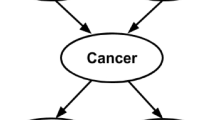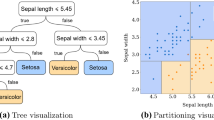Abstract
This paper proposes a system, a meta-reasoner, to diagnose other systems. This system, called DSKE, performs its diagnosis based upon the knowledge of the structure of the system under diagnosis and based upon previous diagnostic experiences with that system. Since DSKE is based upon first order logic, it has strong deductive powers. Given adequate information, it can diagnose problems quite impressively. Contrary to probabilistic and fuzzy logic approaches, our system is not based upon data which may or may not be available, and which may or may not be reliable. Further, our system makes use of available knowledge. Contrary to model based diagnosis systems, our system can handle uncertainty and incomplete knowledge. The algorithm we provide yields a minimal diagnosis which covers all the abnormal behaviors detected. This paper provides a detailed description of DSKE. The inner workings of the system are carefully and comprehensively analyzed. Examples illustrate the advantages of our system, and demonstrate its use.
Similar content being viewed by others
References
de Kleer, J. (1976). MIT AI memo: Local methods for localizing faults in electronic circuits (Vol. 394). Cambridge: MIT Press.
de Kleer, J., & Williams, B. C. (1987). Diagnosing multiple faults. Artificial Intelligence, 32, 97–130. doi:10.1016/0004-3702(87)90063-4.
de Kleer, J., Mackworth, A. K., & Reiter, R. (1992). Characterizing diagnoses and systems. Artificial Intelligence, 52, 197–222. doi:10.1016/0004-3702(92)90027-U.
Jantzen, J., Axer, H., & Keyserlingk, D. G. (2002). Diagnosis of aphasia using neural and fuzzy techniques. Advances in Computational Intelligence and Learning, 2002, 461–474.
Kohlas, J., Anrig, B., Haenni, R., & Monney, P. A. (1998). Model based diagnostics and probabilistic assumption-based reasoning. Artificial Intelligence, 104, 71–106. doi:10.1016/S0004-3702(98)00060-5.
Lucas Peter, J. F. (2001). Bayesian model based diagnosis. International Journal of Approximate Reasoning, 27, 99–119. doi:10.1016/S0888-613X(01)00036-6.
Lunze, J., & Schiller, F. (1999). An example of fault diagnosis by means of probabilistic logic reasoning. Control Engineering Practice, 7, 271–278. doi:10.1016/S0967-0661(98)00161-0.
Portinale, L., & Torasso, P. (1997). A comparative analysis of horn models and bayesian networks for diagnosis. In AI*IA 1997 (pp. 254–265).
Reiter, R. (1987). A theory of diagnosis from first principles. Artificial Intelligence, 32, 57–95. doi:10.1016/0004-3702(87)90062-2.
Rish, I., Brodie, M., & Sheng, M. (2002). Accuracy vs. efficiency trade-offs in probabilistic diagnosis. In AAAI/IAAI 2002.
Venkatasubramanian, V., Rengaswamy, R., Yin, K., & Kavuri, S. N. (2003). A review of process fault detection and diagnosis. Computers and Chemical Engineering, 27, 293–311. doi:10.1016/S0098-1354(02)00160-6.
Zhou, Q., & Peng, W. (2004). Uncertain reasoning and decision making. In Proceedings of international conference on intelligent information processing (IIP2004), Springer.
Author information
Authors and Affiliations
Corresponding author
Rights and permissions
About this article
Cite this article
Zhou, Q., Deng, X., Jones, J.D. et al. A diagnostic system based upon knowledge and experience. Ann Oper Res 168, 267–290 (2009). https://doi.org/10.1007/s10479-008-0362-x
Published:
Issue Date:
DOI: https://doi.org/10.1007/s10479-008-0362-x




